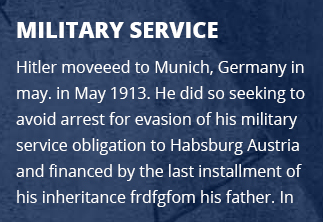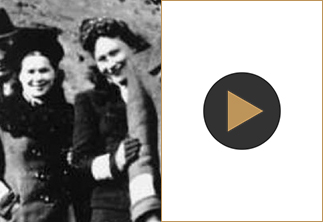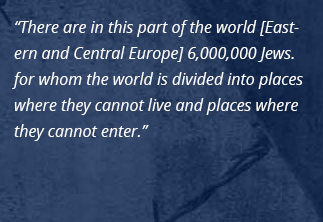THE UNDERGROUND IN THE ZHETEL GHETTO
The initiative behind the underground in Zhetel, its organizer and spirit was the attorney, Alter Dvoretsky. A lot of courage and effort was required, in order to undertake under those conditions, the activities of an underground. These efforts required extreme caution on three levels: in the face of the Germans, the local Christian population, and before a majority of the Jewish population, who were opposed to acts of violence, which they believed could endanger the well-being of the ghetto.
The unfolding of events demonstrated that this mode of thinking (on the part of the Jewish population) was incorrect. The Germans planned a full annihilation of both the peaceful and the extreme Jews, with no distinction. Alter Dvoretsky could foresee these preparations.

He was well-known in public affairs, active in Poalei Zion in Zhetel and in Vilna, and active as a teacher to the youth. In the Zhetel ghetto he was elected to the Judenrat. It was not easy to function in this task and to maintain a moral lifestyle. As is known, the Germans would undertake their despicable deeds with the assistance of the Judenrat, however, Alter Dvoretsky took advantage of his position on the Judenrat in order to organize the youth for revolt and armed struggle.
In this work, he was assisted by the youth from among the refugees in the Zhetel ghetto. These young men, who had been exiled from their homes, had lost their families and all of their possessions, discovered together a readiness to engage in resistance activity.
In his organization of the Jewish police in the Zhetel ghetto, Alter Dvoretsky enlisted his supporters into its ranks. This fact enabled him to smuggle arms into the ghetto. With their assistance and with the assistance of former Soviet officers who had found shelter in surrounding villages, Dvoretsky managed to acquire arms. He received them in the cemetery and with the help of the Jewish police he hid them in an abandoned building.
Alter Dvoretsky also put together a plan in the event of liquidation (of the ghetto). For this purpose he divided the underground group into thirds and assigned each with special tasks. One third was supposed to set fire to the sawmill of Leib Kaplinski, the second—to the flourmill of Tchernikvitz. The rest were assigned to take control of the home of the head of the German police and the machine gun in the labor office.
The purpose of these actions was to arouse panic and chaos among the Germans and thus enable the youth to flee to the forests. This plan was never put into action. The transfer of Jews to the ghetto was not accompanied by an extermination action.
In the same period, Alter Dvoretsky made contact with a former Soviet officer, Vaniah. On the 26th of April, 1942, Vaniah met with members of the Zhetel underground and offered them weapons. This offer aroused suspicions. Abraham Alpert, the commander of the police in the ghetto, recommended to not hold the meeting (to acquire arms). Alter Dvoretsky also agreed with this assessment. However, a portion of the youth, chief among them Shalom Fiolon, decided that there was no danger in holding a meeting with Vaniah.
Just before evening, Shalom Fiolon snuck through the Zhetel ghetto fence and came to the meeting place. Vaniah was already waiting there for him and offered him a firearm. At this moment, they were set upon by police officers. Shalom Fiolon tried to shoot at them but his gun misfired.
The police subjected Shalom Fiolon to intense torture, but he did not reveal the secrets of the underground. In a note that was smuggled into the ghetto written in his blood he wrote:
“Comrades, do not be afraid, I will not betray you, continue the resistance and avenge my spilled blood!”
The members of the ghetto underground were not certain that Shalom Fiolon would be able to withstand the torture and they decided to flee to the forest. On the 28th of April Alter Dvoretsky, along with his assistants: Yonah Medbetsky, Eliezer Vinersky, and Pesach Finkelstein, left the ghetto and headed for the forest.
In the forest, Alter Dvoretsky established contact with Christian partisans. He proposed to them an attack on Zhetel, in order to save the ghetto, but the Christian partisans were not convinced (of the necessity of such a move). The partisans’ principle aims in this time period were to obtain food and drink and to avoid contact with the Germans. In addition, they did not feel any particular affinity towards the Jews. The partisans invited Dvoretsky to a meeting to discuss his bold plan. On the way back from the meeting, Alter Dvoretsky and Moshe Pozdonsky were attacked by a group of partisans. In the fight that ensued they were both killed, defending the honor of Israel. Their grave is located in a wood near Podivorka. May their memory be honored!
According to Shalom Gerling




